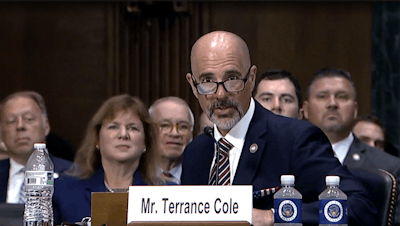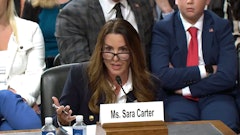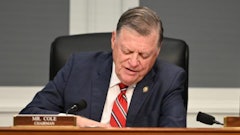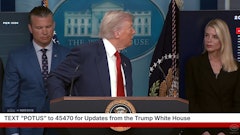
President Donald Trump’s pick to lead the Drug Enforcement Administration (DEA) provided cannabis rescheduling hopefuls both optimism and concern during his nomination hearing on April 30.
Terry Cole, a DEA veteran whom Trump nominated in February to be the agency’s next administrator, told U.S. Senate Judiciary Committee members that “it’ll be one of my first priorities” upon being confirmed to review where the DEA is in the administrative process to reschedule cannabis.
Currently, the DEA’s administrative law judge (ALJ) hearing process to debate the merits of the Department of Justice’s proposed rule to reclassify cannabis from Schedule I to Schedule III under the Controlled Substances Act is delayed by an interlocutory appeal.
“I’m not familiar exactly where we are, but I know the process has been delayed numerous times, and it’s time to move forward,” Cole told Sen. Alex Padilla, D-Calif., during the confirmation hearing, which also included Gady Serralta, Trump’s nominee to be director of the U.S. Marshals Service.
The current Schedule III proposal stems from October 2022, when President Joe Biden directed his cabinet to initiate an administrative process to review how cannabis is scheduled under federal law.
Upon his presumptive confirmation, Cole would be responsible for setting a briefing schedule to allow the hearing’s designated participants to file briefs with the DEA concerning the interlocutory appeal—which accuses the DEA of improper communications with anti-rescheduling participants—before a stay can be lifted on the hearing process.
After participants file their briefs, Cole could entertain oral arguments, if he “desires,” and then issue a binding, written decision to the DEA’s chief ALJ, Judge John J. Mulrooney, on the appeal and if the hearing process should resume.
While Cole indicated during his confirmation hearing that he’s in favor of moving the process forward, he declined to provide an answer when Padilla asked if he was committed to seeing the Schedule III proposed rule through to “fruition.”
“I need to understand more where they are and look at the science behind it and listen to the experts and really understand where they are in the process,” Cole said.
“We know where we are. We know what the directive is: Get it to Schedule III. Are you committed to seeing it to fruition?” Padilla asked again.
“So, I don’t know. I haven’t seen that, sir,” Cole said.
“So, you’re leaving the door open to changing course as to—?” Padilla asked.
“I’m leaving the door open to studying everything that’s been done so far, so I can make a determination, sir,” Cole said.
“So, make myself a note here—no answer to that particular question,” Padilla said.
After conducting a scientific and medical evaluation, the U.S. Department of Health and Human Services (HHS) determined in August 2023 that cannabis has low abuse potential and currently accepted medical use in the U.S., recommending that the plant be reclassified as a Schedule III substance.
Former Attorney General Merrick Garland signed off on the proposed rule, which the DEA has yet to commit to despite acting as the “proponent” of the rule in the ALJ hearing process.
After the ALJ hearing—should it resume and conclude—Mulrooney’s job is to provide the DEA with his recommendation for whether to issue a final rule that’s consistent with the proposed rule; however, that decision is ultimately up to the DEA administrator unless U.S. Attorney General Pam Bondi redelegates the DEA’s rescheduling authority to herself.
While the attorney general traditionally delegates his or her rescheduling authority to the DEA, some argue that Garland never delegated that authority to the agency to issue a final rule on the current cannabis rescheduling proposal under the Biden administration.
In any case, a rescheduling process that began under Biden is now in the hands of the Trump administration. Although Trump signaled support for cannabis rescheduling in late 2024, the story of how far the president is willing to go to influence policy on the issue remains untold.
Despite struggling state-sanctioned industries that could realize much-needed tax relief under rescheduling, cannabis policy often finds itself on the back burner of the nation’s elected and appointed officials.
During Wednesday’s hearing, Cole told committee members that his No. 1 priority, if confirmed as the DEA administrator, will be to combat the fentanyl crisis by securing U.S. borders and drawing on his 30-year law enforcement experience that has provided him a “unique perspective on cartel-driven devastation affecting our communities.”
He didn’t mention cannabis policy in his opening statement.
Behind that 30-year law enforcement career, Cole said in February 2024 that “everybody knows my stance on marijuana … so don’t even ask.”



























